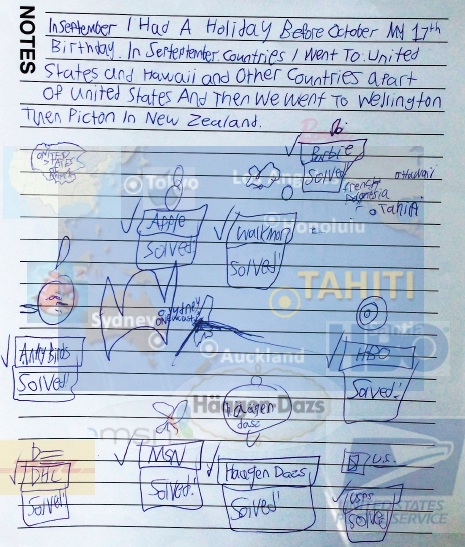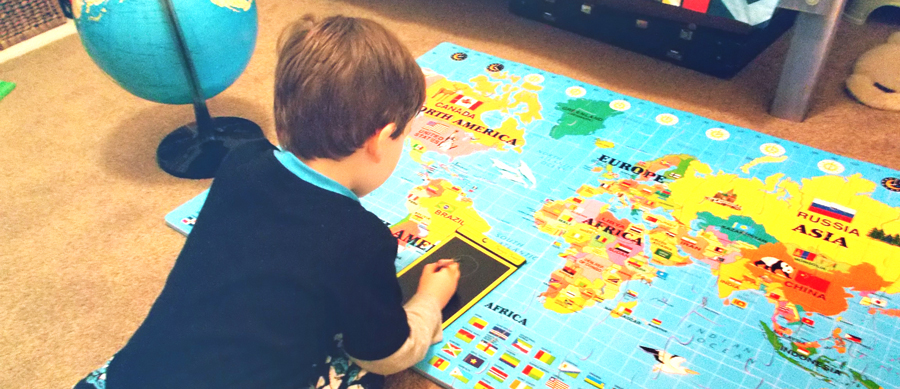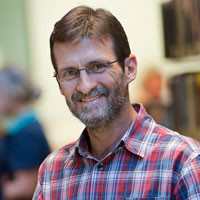
Research
Comparative and International Education research aims:
- Facilitate the development of case-studies (also known as spokes), utilising critical and post-structural theoretical frameworks in the analysis of these cases, and the alternatives within them, across temporal and multi-scalar levels.
- Explore case-studies at multiple levels of analysis, including analyses of policy as articulated and promoted by government, transnational agencies, Aid agencies, NGOs, and social movements.
- Challenge established dichotomies and associated non-productive debates (e.g. structure / agency; global / local; determinism / free will; reform / revolution) in educational policy formulation and analyses, in favor of more nuanced (temporal and locational) and comprehensive studies.
- Elaborate critical readings of dominant educational policies, drawing on and through subordinate understandings, policies and practices, to demonstrate how these present viable alternatives for contemporary contexts.
- Promote interventionist or engaged academic work under contemporary conditions – impacting on policy debate, formulation and implementation and promoting social transformation.
CIEGUN’s Research Spokes
- Researcher(s): Dr Zsuzsa Millei (CIEGUN) in collaboration with children at Kurri Kurri Preschool, Jannelle Gallagher Director of Kurri Kurri Preschool and Sandii Walker Artist.
- Funding: School of Education, University of Newcastle (2013) Jean Denton Memorial Scholarship (2014 to 2015).
- Year(s): 2013 to 2015
The Multiple Worlds in a Preschool project is about our place making; about the knots of our worlds and multiple stories of the global that exist in everyday lives in a preschool.
Our aim is to reconfigure our communities as children's places, where we prefigure the world we want to see through our negotiations based on adults' stories of place as children and children's stories at the present. Our place-making in our community with children is about our co-presence, relationships and stories that make the place our place and form our community.
 The project engages in the discussion that concerns the local groundedness of the global. Readings of Doreen Massey and Tim Ingold's theorizing are applied to the ways in which we are making 'sense of place' and do 'place-making' with children in a preschool in Australia.
The project engages in the discussion that concerns the local groundedness of the global. Readings of Doreen Massey and Tim Ingold's theorizing are applied to the ways in which we are making 'sense of place' and do 'place-making' with children in a preschool in Australia.
According to Massey (2005), qualities of places are products of coalescing and colliding chains of events and movements that generally occur more widely than the place itself - often at different sites or scales, or perhaps different realms and times for children.
These chains or 'trajectories' imprint places with layers of inferences and practices and give rise to interpreted histories, spatial connotations and imaginaries. Accordingly, they help actors to develop a 'sense of place' and engage with processes of 'place making' by endowing places with meaning and practices.
Space for Massey (2005) or 'lifeworld' for Ingold (2011) is a domain of co-presence, of relationships-in-practice, of the entanglement of multiple lifelines as they become caught up with one another in going their respective ways.
Thus, the 'lifeworld' of a preschool is a host of different stories where these multiple stories become caught up with other lifelines on path to distant places or cultures or knot together at a place bringing in time and again vistas with horizons to the global.

References:
- Ingold, T. (2011) Being Alive: Essays on Movement, Knowledge and Description. London & New York: Routledge
- Massey, D. (2005) For Space. London, UK: Sage
- Researcher(s): Tom Griffiths
This project examines policy from historical and current contexts across the capitalist world-economy, that seek to develop and advance overt socialist political projects, and to direct education to support such projects. It explores the nature, content and practice of these educational initiatives in terms of their potential contribution to wider anti-systemic social movements that are challenging the logic of capitalism. The research agenda is based on world-systems analysis (WSA) as a framework for understanding socialist education historically, and in contemporary times. In times of systems crisis, WSA highlights the potential for education to contribute to an understanding of contemporary crises, the articulation of alternatives to the capitalist world-system, and political actions to move towards such futures. This work includes compiling empirical data examining the secular trends of the world-economy and how they are experienced in different locations, coupled with investigation of challenges to established educational policy in these contexts through a WSA lens. It also elaborates a case for the inclusion of WSA within the field of critical education/pedagogy.
- Researcher(s): Zsuzsa Millei
Historically, national governments' interest in children has always been about a nation's future: "investments in future parenthood, economic competitiveness, and a stable democratic order" (Hendrick, 1997, p. 46). When the future is debated, childhood stands in the crosscurrent of various competing cultural and political projects, such as improving the moral fabric of society or preserving a coherent national community. The ways in which we understand spaces of childhood and nation and their intersections of national childhoods, shape how we understand our own childhood (memories of belonging to a nation), children's worlds (as a/political agents and citizens of a nation and / or globe) and children's lives. Despite these notions' defining characteristics to our identities and civic participation, we know little about the premises upon which children's sense of belonging to a national community is constructed and how children come to assume and inhabit national identities. Our globalising world also poses several challenges for understanding nation and childhood, since nation-centred analysis of policies, provisions, constructions and experiences of childhood arguably no longer stand. Family, community or nation-bound notions of 'childhood' are also being increasingly challenged by processes of globalisation and mobility. Many children today are global travellers and in connection with people and things from different places often far from home and through the media and technology. This context necessitates new imaginations, theoretical arguments and empirical investigations.
- Researcher(s): Nisha Thapliyal
This research project examines competing discourses of education rights in India and Brazil using feminist, critical, and post-colonial conceptualizations of the relationship between social movements for education and the state in deeply stratified, capitalist societies (Mohanty 1984; Alvarez, Dagnino & Escobar 1990). In this conceptual framework, education as well as rights-based approaches to development, is understood to be contested and contradictory terrain wherein exists the potential to reproduce or challenge and transform extant social hierarchies. Research methodologies employed in this project are shaped by feminist and critical scholarship about policy analysis and social movement research; specifically methodologies shaped by critical ethnography and participatory action research (Kincheloe & McLaren, 1994).
- Researcher(s): Stephanie Bengtsson
This research project is particularly interested in the "aid-ophone" community, whose members have formed inter-agency groups around and as a result of international agreements and goals, and who thus share a certain vocabulary and discourse related to humanitarian assistance and development (Bengtsson, 2011). It builds on the premise that language has "constitutive power", and that, as such, the humanitarian imperative to 'first, do no harm' is impossible for aid professionals to follow unless they first speak no harm (Mehan, 1997, p.250). Inherent to this project is the recognition "that knowledge is socially constructed and shaped by relations of power" and thus looks at a community that has more control over the "knowledge" around aid than those who are actually meant to benefit from the aid interventions (Vavrus & Seghers, 2010, p.77). Exploring what is traditionally seen as a homogeneous elite level in this way has been termed "studying up" by Nader (2002, p.284). This project will contribute to the scholarship on critical discourse analysis within comparative education, and is motivated by the hitherto untapped potential for linguistic change to bring about meaningful shifts in aid practice.
- Researcher(s): Linda Newman
Newman's research project explores how through re-envisioning pedagogical leadership and by creating enabling learning environments, teachers, parents, children and communities re-interpret, enact and resist educational policies in Chile, Australia and South Africa. Newman's interest is in the challenges to policy provided by participants acting at ground-level (Freire, 1992) and the relationships between policy and practice. The theoretical foundations of her work lie in socio-cultural theories (Vygotsky, 1978; Woodrow & Newman, 2011) and is underpinned by the explicit goal of re-positioning adults and children as active agents in learning encounters where learning is co-constructed within social, cultural and historical contexts (UWS, 2011). Methods currently in use and informed by these theoretical approaches include Participatory Action Research (Furlong & Oancea, 2005), visual methods such as photovoice (Pink, 2001), and ecologically informed environmental (early childhood literacy environment) rating scales.
- Researcher(s): Eva Petersen
In neoliberalising societies across the globe universities have undergone and are undergoing some far-reaching changes, which have significant impact on the conditions for and the enactment of academic work, and for academic subjectification. It remains significant to map the lived experiences of these processes and critically assess their effects.
The University of Newcastle acknowledges the traditional custodians of the lands within our footprint areas: Awabakal, Darkinjung, Biripai, Worimi, Wonnarua, and Eora Nations. We also pay respect to the wisdom of our Elders past and present.
